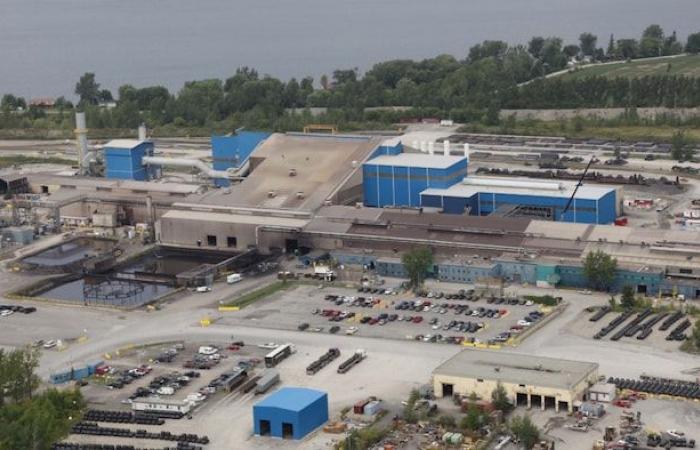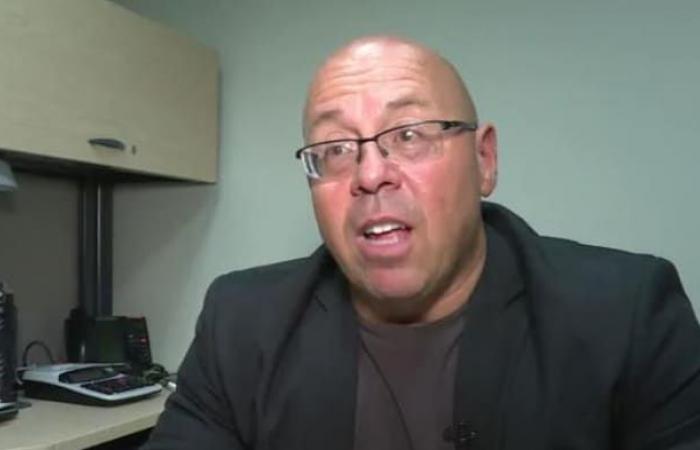Ontario industrial steel wire producer Ivaco Rolling Mills welcomes the recent decision of the Canadian International Trade Tribunal (CITT) which recognizes that the dumping of certain steel products originating in or exported from China, Egypt and Vietnam on the Canadian market, caused damage to the domestic industry.
What is dumping?
Dumping consists of selling abroad at prices lower than those charged on the national market and therefore distorting competition.
Ivaco Rolling Millswhose plant is located in L’Orignal, in the United Counties of Prescott and Russell (CUPR), produces up to 900,000 tons of industrial steel wire [fils-machine] per year.
In February 2024, the company filed an anti-dumping complaint with TCCE for concerns regarding commercial practices deemed unfair by these three countries exporting steel products on the Canadian market.
China, Egypt and Vietnam were notably accused of selling their products at prices lower than their fair market value. This is not the first time that these countries have been accused of this type of practice.
In its decision filed Friday following an investigation into special import measures, the TCCE concluded that this practice caused harm to Ivaco Rolling Mills and that anti-dumping duties will be imposed by the Canada Border Services Agency
.
Open in full screen mode
The Ivaco plant in L’Orignal, in Eastern Ontario
Photo : Ivaco Rolling Mills
Canada must continue to oppose countries that seek to flood the market with carbon-intensive products through unfair trade practices […] in order to maintain fair conditions of competition for all players in the Canadian market
declared Stéphane Oehrli, president ofIvaco Rolling Millsin a press release issued Friday.
Ivaco Rolling Mills refused Radio-Canada’s interview request, but claims to be happy
that the TCCE accepted his arguments in favor of protecting the Canadian steel industry.
Less green and fair products
The carbon emission levels emitted by the production of steel wire or wire rod from China, Egypt and Vietnam are higher than those from Canadian producers and are shipped long distances. This international production imported into Canada therefore goes against the country’s policies aimed at promoting and developing a healthy environment and economy
according to Ivanco Rolling Millswhich emphasizes in its press release that Canadian steel production is one of the lowest in the world in terms of carbon intensity.
We will continue to call on the Government of Canada to preserve the long-term viability of Canadian wire rod producers, our assets and the collective job security of our employees
indicates the president of the company.
A decision courageous
Professor at the Faculty of Law and School of Management at the University of Ottawa, Marc Tassé, explains that this court decision is favorable for Canadian steel producers. We will have to impose a surcharge on the price of these materials imported from Asia or certain countries, under anti-dumping rules. It will be less attractive to import and therefore more competitive [pour le marché canadien]
explains the professor.
This shows that we take such reports seriously and that our officials do their job well, with courage, because courage is needed given international pressure.
According to him, foreign countries often expect this kind of situation and could oppose this decision, in providing additional evidence and trying to negotiate a deal with Canada
.
Open in full screen mode
Professor at the University of Ottawa, Marc Tassé explains the surcharges are imposed to dissuade businesses from not respecting Canadian rules.
Photo : Radio-Canada / CBC
Mr. Tassé says that China, Egypt and Vietnam will have a ethical choice
to be carried out, after an analysis of costs versus benefits. These countries will have to choose between respecting the environmental and equity rules required by Canada or paying the import surcharge.
We tell these countries, you have a choice: either you pay your employees more and respect environmental rules, or we impose a tax on you.
he popularizes.
This type of measure can be beneficial for these exporting countries
according to the expert. They will perhaps say that since they cannot sell their product at a lower price, they might as well invest in their workforce and respect our environmental rules.
mentions Mr. Tassé.
The TCCE plans to publish the reasons for its decision on October 18.







